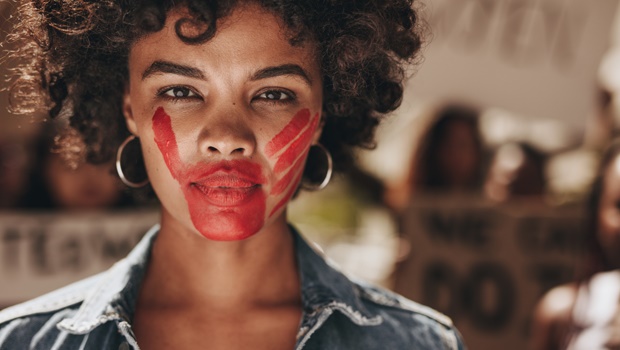
According to the Guardian, New Zealand has passed a new law granting survivors of domestic violence 10 paid days leave in order to allow time for them to leave their abusive partners, find new homes and protect themselves and their children.
There was much celebration as the bill was passed with 63 votes to 57. This comes as a result of seven years of hard work by Green MP Jan Logie, who worked in a women’s refuge before she became a politician. The new law will be effective from 1 April 2019.
Although opponents of the bill have argued that it would cost small and medium-sized businesses money, Jan argued in a speech before parliament that domestic violence often impacts employees at work.
READ MORE: "Get out or die" - meet the woman who travels around the world to help victims of domestic abuse
"All too often, victims have to leave their jobs because of this, and it makes them more reliant on their abusive partner, and means their employer has to recruit and train up new staff," Logie said. "It's a lose-lose situation."
In 2017, NZ Herald reported that New Zealand has the highest rate of domestic violence in the world, with about 105 000 family violence calls in 2016.
According to BBC News, New Zealand is the second country to grant domestic abuse victims paid leave. The Philippines passed a similar law in 2004.
This is a great step forward in giving support to those who need it, but shouldn’t more countries be doing this? Shouldn’t South Africa also be thinking of creating a law like this to protect victims of abuse?
We spoke to the founder and director of TEARS foundation, Mara Glennie, to get her input on what she thinks a law like this could do for South Africa: “It seems like an excellent, excellent bill to add to our already comprehensive and world-leading laws against abuse, etc, however, I do not believe that this will solve the problem of IPV (intimate partner violence),” says Mara.
READ MORE: More sexual offence courts needed in SA to convict rapists
“For victims of sexual violence, the law is not enough to protect them. In October, the South African Medical Research Council (SAMRC) released its report Rape Justice in South Africa in Pretoria. The results are nothing short of shocking. The report investigated the effectiveness of the criminal justice system in securing justice for victims of rape. The study investigated 3 952 cases of rape reported in 2012 across 170 police stations. Within this study, 57% led to arrests, but only 8,6% (340) were finalised with a guilty verdict.”
Mara also shared some statistics from studies done by the Medical Research Council and Centre for Public Mental Health on IPV:
- Every eight hours (on average), a woman dies at the hands of an intimate partner in South Africa.
- IPV is the most common form of violence experienced by South African women and is the leading cause of death among South African women.
- More women are killed by their current or former intimate male partner in South Africa than in any other country in the world.
- Victims remain hesitant to disclose their situation because of the stigma attached to IPV. Those who do report incidents reportedly deal with public servants who fail to detect their problem or deny that it exists.
- Of pregnant women, 36-40% experience physical IPV and 15-19% experience sexual IPV. The violence increases the risk for the baby, which could be born pre-term and with a low birth weight.
READ MORE: Should we be calling Solange an abuser?
Mara stresses the importance of organisations like TEARS in helping counter intimate partner violence and offer support to victims: “Rape facilities such as TEARS Foundation need immediate financial support. There must be a concerted effort to ensure we have the necessary funds made available to continue this fight,”says Mara.
She says that before we’re able to enforce a law like this, many things have to be done: “Legislation must ensure adequate financial support is available in the fight against gender-based violence. Setting up a system where victims of IPV can apply for paid domestic violence leave is definitely the cart before the horse as we have insufficient shelters for abuse victims and only enough long term facilities, nationally, that you can count on one hand.”
READ MORE: When men are abused and raped – why are we not taking it seriously?
Mara says that many of the facilities designated to provide comprehensive care to survivors of sexual violence in South Africa are unable to provide the much needed services. “Sexual assault survivors in South Africa can, in theory, access a range of services to offer support, counselling and medical assistance, and help gather evidence if the victim wants to press charges. Emphasis on ‘theory’. The practice is something very different.”
So it looks like while South Africa has great laws to protect victims of domestic violence, giving them paid leave might not be feasible just yet.
If you or someone you know needs help to get out of an abusive situation, then contact TEARS on 010 590 5920 or email them at info@tears.co.za or visit their website.
Sign up to W24’s newsletters so you don't miss out on any of our hot stories and giveaways.




 Publications
Publications
 Partners
Partners










